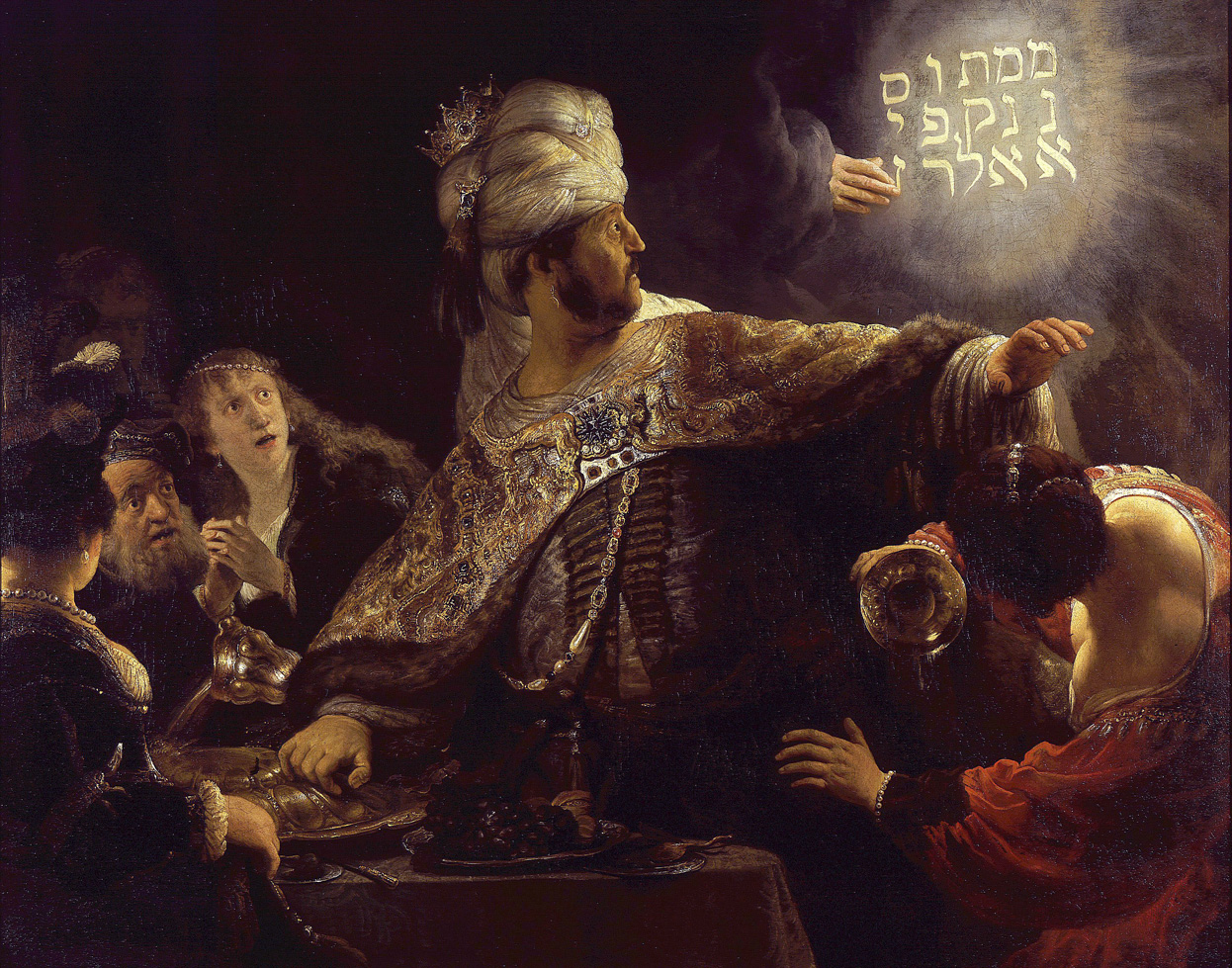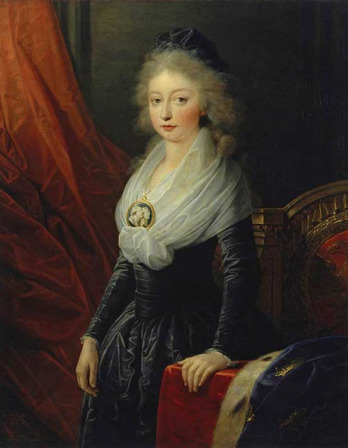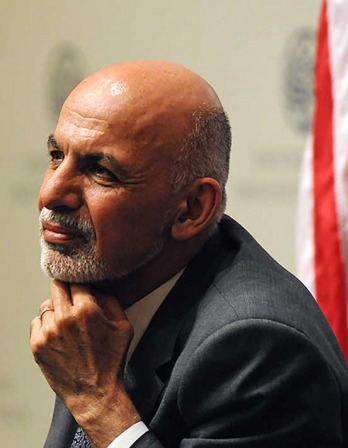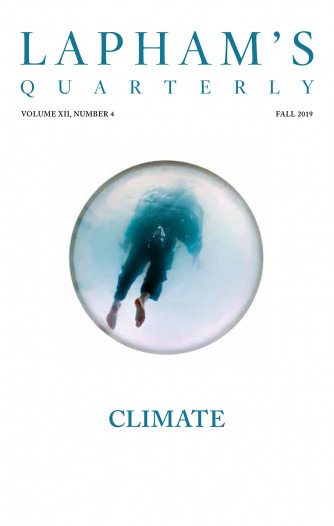Not a change for the better in our human housekeeping has ever taken place that wise and good men have not opposed it—have not prophesied that the world would wake up to find its throat cut in consequence.
—James Russell Lowell, 1884Connecting the Dots
Looking for Napoleon in the Book of Revelations.
From the day when Pierre Bezukhov had gazed at the Great Comet of 1811–12 that seemed to be fixed in the sky and felt that something new was appearing on his own horizon—from that day, the problem of the vanity and uselessness of all earthly things that had incessantly tormented him no longer presented itself.
When he listened to, or himself took part in, trivial conversations, when he read or heard of human baseness or folly, he was not horrified as formerly and did not ask himself why men struggled so about these things, when all is so transient and incomprehensible but he remembered Natasha Rostova as he had last seen her, and all his doubts vanished—not because she had answered the questions that had haunted him, but because his conception of her transferred him instantly to another, a brighter, realm of spiritual activity in which no one could be justified or guilty—a realm of beauty and love which it was worth living for. Whatever worldly baseness presented itself to him he said to himself:
“Well, supposing someone has swindled the country and the tsar, and the country and the tsar confer honors upon him—what does that matter? She smiled at me yesterday and asked me to come again, and I love her, and no one will ever know it.” And his soul felt calm and peaceful.
Pierre still went into society, drank as much, and led the same idle and dissipated life; the habits and acquaintances he had made in Moscow formed a current that bore him along irresistibly. But latterly, when more and more disquieting reports came from the seat of war, an ever increasing restlessness which he could not explain took possession of him. He felt that the condition he was in could not continue long, that a catastrophe was coming which would change his whole life, and he impatiently sought everywhere for signs of that approaching catastrophe. One of his brother Masons had revealed to Pierre the following prophecy concerning Napoleon, drawn from the Revelation of St. John:
In chapter 13, verse 18, of the Apocalypse, it is said: “This calls for wisdom: let anyone with understanding calculate the number of the beast, for it is the number of a person. Its number is six hundred and sixty-six.”
And in the fifth verse of the same chapter: “The beast was given a mouth uttering haughty and blasphemous words, and it was allowed to exercise authority for forty-two months.”
The French alphabet, written out with the same numerical values as the Hebrew, in which the first nine letters denote units and the others tens, will have the following significance:
a: 1; b: 2; c: 3; d: 4; e: 5; f: 6; g: 7; h: 8; i: 9; k: 10; l: 20; m: 30; n: 40; o: 50; p: 60; q: 70; r: 80; s: 90; t: 100; u: 110; v: 120; w: 130; x: 140; y: 150; z: 160.

Belshazzar’s Feast, by Rembrandt van Rijn, c. 1635. National Gallery, London.
Writing the words L’Empereur Napoléon in numbers, it appears that the sum of them is 666, and that Napoleon was therefore the beast foretold in the Apocalypse. Moreover by applying the same system to the words quarante-deux (forty-two), which was the term allowed to the beast that uttered “haughty and blasphemous words,” the same number 666 was obtained; from which it followed that the limit fixed for Napoleon’s power had come in the year 1812, when the French emperor was forty-two. This prophecy pleased Pierre very much, and he often asked himself what would put an end to the power of the beast, that is, of Napoleon, and tried by the same system of using letters as numbers and adding them up to find an answer to the question that engrossed him. He wrote the words L’Empereur Alexandre, La nation russe and added up their numbers, but the sums were either more or less than 666. Once when making such calculations he wrote down his own name in French, Comte Pierre Besouhoff, but the sum of the numbers did not come right. Then he changed the spelling, substituting a z for the s and adding de and the article le, still without obtaining the desired result. Then it occurred to him that if the answer to the question were contained in his name, his nationality would also be given in the answer. So he wrote Le russe Besuhof and adding up the numbers got 671. This was only five too much, and five was represented by e, the very letter elided from the article le before the word Empereur. By omitting the e, though incorrectly, Pierre got the answer he sought. L’ russe Besuhof made 666. This discovery excited him. How, or by what means, he was connected with the great event foretold in the Apocalypse he did not know, but he did not doubt that connection for a moment.
The Antichrist, Napoleon, the invasion, the comet, 666, L’Empereur Napoléon, and L’russe Besuhof—all this had to mature and culminate, to lift him out of that spellbound, petty sphere of Moscow habits in which he felt himself held captive, and lead him to a great achievement and great happiness.
The rumors of the discovery of spies in Moscow and of a leaflet in circulation stating that Napoleon promised to be in both the Russian capitals by the autumn, and the talk of the emperor’s being expected to arrive next day—all aroused with fresh force that feeling of agitation and expectation in Pierre which he had been conscious of ever since the appearance of the comet, and especially since the beginning of the war.
He had long been thinking of entering the army and would have done so had he not been hindered, first, by his membership of the Society of Freemasons to which he was bound by oath and which preached perpetual peace and the abolition of war, and secondly, by the fact that when he saw the great mass of Muscovites who had donned uniform and were talking patriotism, he somehow felt ashamed to take the step. But the chief reason for not carrying out his intention to enter the army lay in the vague idea that he was L’russe Besuhof who had the number of the beast, 666; that his part in the great affair of setting a limit to the power of the beast that spoke great and blasphemous things had been predestined from eternity, and that therefore he ought not to undertake anything but wait for what was bound to come to pass.

Leo Tolstoy
From War and Peace. In between publishing the autobiographical works Childhood in 1852 and Youth in 1857, Tolstoy commanded a battery in the Crimean War during the siege of Sebastopol, an experience that inspired a book named for the city that won him renown. In his later years, the author of Anna Karenina was a mentor to younger writers; in his memoirs, Maxim Gorky recalled Tolstoy telling Chekhov, “You are a very, very good person!” during a conversation—on the telephone.


